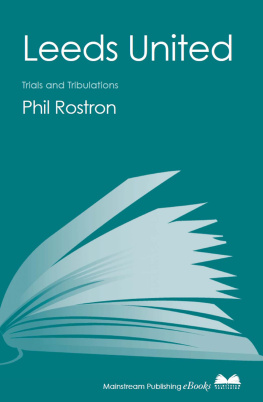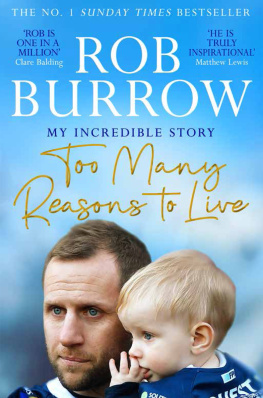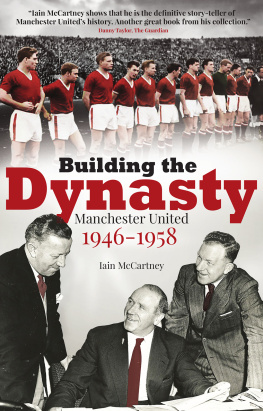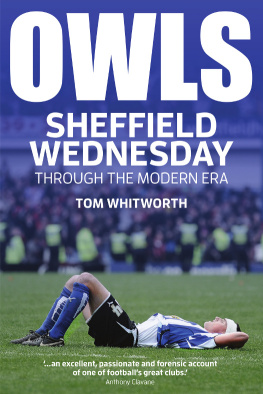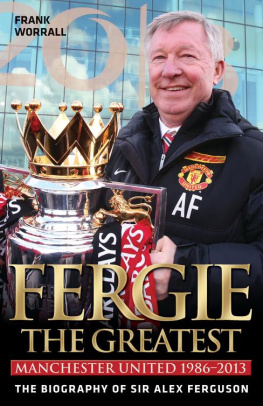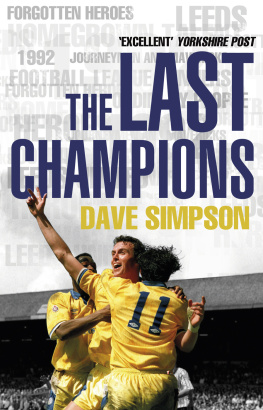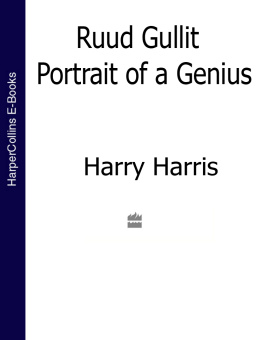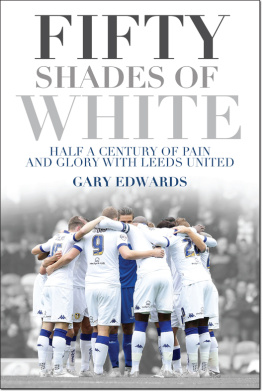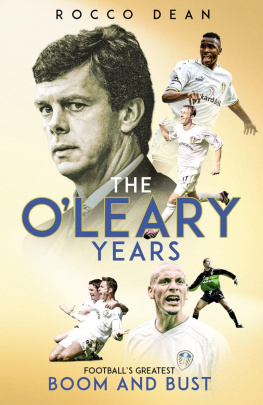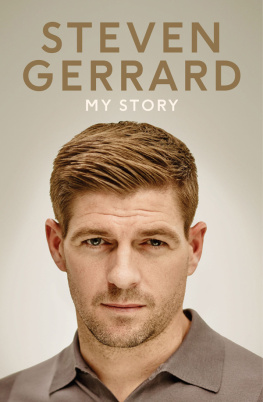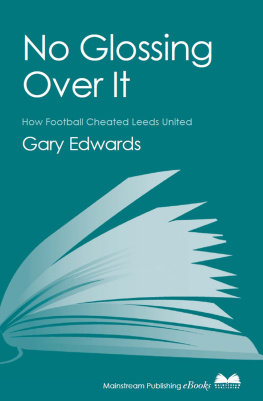This eBook is copyright material and must not be copied, reproduced, transferred, distributed, leased, licenced or publicly performed or used in any way except as specifically permitted in writing by the publishers, as allowed under the terms and conditions under which it was purchased or as strictly permitted by applicable copyright law. Any unauthorised distribution or use of this text may be a direct infringement of the authors and publishers rights and those responsible may be liable in law accordingly.
Epub ISBN: 9781780574301
Version 1.0
www.mainstreampublishing.com
This edition, 2008
Copyright Phil Rostron, 2004
All rights reserved
The moral right of the author has been asserted
First published in Great Britain in 2004 by
MAINSTREAM PUBLISHING COMPANY (EDINBURGH) LTD
7 Albany Street
Edinburgh EH1 3UG
ISBN 9781840188882
No part of this book may be reproduced or transmitted in any form or by any means without written permission from the publisher, except by a reviewer who wishes to quote brief passages in connection with a review written for insertion in a magazine, newspaper or broadcast
All images Yorkshire Evening Post
A catalogue record for this book is available from the British Library
ACKNOWLEDGEMENTS
Caroline Rostron and Shirley Whitehead for their painstaking audio-typing skills; Neil Hodgkinson for his unwavering patience; John Woodcock, Rob Waugh, Andrew Vine, Jeremy Cross and David Parkin for their co-operation; Stuart Martel and Paul Dews for their revision; Andy Manning and Steve Riding for their excellence and kindness in the photographic field; Peter Ridsdale, Allan Leighton, Professor John McKenzie, Peter Reid, Adam Pearson, Trevor Birch, Geoffrey Richmond, Dominic Matteo and Peter Lorimer for sparing their time; Jo Rostron, Gary Rostron and Hollie Rostron for understanding that their dad was otherwise engaged.
FOREWORD
The story of the last seven years of Leeds Uniteds history is one of a dramatic fall from grace. Anger, hurt, disillusionment, disbelief, incredulity and a river of tears have all been on open display as the club have plummeted from the euphoria of reaching the Champions League semi-final in 2001 to the heartbreak of successive relegations from the Premiership and the Coca-Cola Championship. In that short time, there have been eight managers and five chairmen. That is incredible. Top-class players such as Rio Ferdinand, Jonathan Woodgate and Harry Kewell have departed the club, and they were joined in the summer of 2004 by the much-loved Alan Smith, who moved to Manchester United and subsequently to Newcastle United. Since then many players have come and gone, and the very fabric of the club has been torn apart by a remarkable series of events. The club is now in a period of rehabilitation in English footballs third tier. I have taken a seat on the board and fully intend to play my part in ensuring a period of stability. Goodness knows, that is what Leeds United needs after the bumpiest of rides, and in chairman Ken Bates and manager Gary McAllister there is something of a dream team in place in 200809. Leeds have been relegated before and have bounced back and, however long it takes, I am sure they will once again cross swords with the big boys. Few people have been better placed to tell the harrowing story of this topsy-turvy period in Leeds Uniteds history than former Yorkshire Evening Post sports editor Phil Rostron, who has lived and breathed every minute of its passage both personally and professionally. For Leeds United fans, this book is a compelling blow-by-blow account of what has happened to their beloved club. For non-Leeds United fans, it is the definitive lesson in how not to run a football club.
Peter Lorimer
INTRODUCTION
My interest in Leeds United began during the Don Revie era, just as it did for many others. I was a great admirer of their exploits and triumphs during this time and was present, as an interested spectator, when a Billy Bremner goal finally settled a titanic three-game FA Cup semi-final in a second replay with Manchester United at Boltons Burnden Park in 1970.
Then, in the 1980s, Leeds were involved in some fantastic games, seemingly always in one of the cups or the play-offs, with Oldham Athletic, whom I have supported since I was a boy. I was sports editor of the Daily Star in London when Leeds won the championship in 1992, and I obtained from Howard Wilkinson, their manager, an extraordinary exclusive based on his techniques. I travelled with Wilkinson to Florence as his guest at UEFA s end-of-season managerial awards ceremony and then, the following season, initiated for the Daily Star a prestigious sponsorship of Leeds European Cup games against Stuttgart and Glasgow Rangers.
So, when I was offered the position of chief sports writer for the Leeds-based Yorkshire Evening Post in 1999, covering Leeds United on a daily basis, there wasnt much decision-making to do. It was an enticing scenario. Here was a club definitely on the up, having been deprived of third place in the Premiership the previous season only on goal difference. They would be playing in the UEFA Cup, a championship challenge was a real possibility and their compelling brand of attacking football under the new managerial partnership of David OLeary and Eddie Gray already had people up and down the country sitting up and taking notice. When you threw into that mix the fact that the Yorkshire Evening Post, with its circulation of 100,000 copies a night, is the Leeds United fans bible, the scene was set for an exciting odyssey. Come Boxing Day, Leeds, playing to sell-out crowds, had lost just three of their nineteen Premiership matches and had progressed to the fourth round of the UEFA Cup. My early impressions were of a club clearly going places, but with a growing paranoia amongst its ranks. The manager, his coaching staff and many of the players were reluctant to discuss anything of substance and it was left to the chairman, Peter Ridsdale, to carry the media flag. From my perspective, with three pages of club news to produce every day, he became a vital contact and he rarely let me down. He understood, unlike others, how critical was the link between the Yorkshire Evening Post and the fans, and he did his best to oblige. I enjoyed our conversations. After a while, he would describe our telephone exchanges as his daily game of chess, with me moving in for the next exclusive and he either accommodating the move or putting me in check. But it was usually fun, and Peters affection and enthusiasm for the club were contagious. We talked of big-money transfers, money-spinning cup runs and sky-high player contracts; of the prospects of a new stadium, of the share price and of new investments. The club was on the crest of a wave, bang on course and always on the telly. Yet, no sooner had the new millennium been ushered in than two events in the space of four months conspired to turn the spotlight on Leeds United for all the wrong reasons. First, in January 2000, the late-night brutal beating of a student in Leeds city centre was shown to have had some of the clubs players at or near the scene. Then, in April, when football violence once again reared its ugly head, two of its fans were murdered in the main city square in Istanbul on the eve of the clubs UEFA Cup semi-final against Galatasaray. Despite these horrendous occurrences, Leeds secured a place in the Champions League for next season (pending a qualifying match with TSV 1860 Munich) with a third-place finish behind Manchester United and Arsenal and were now, unquestionably, in the big time. That they should go on to reach the semi-final with such a young, inexperienced squad defied all logic and belief, but not only did they do so, they also did it in style, with unlikely victories over such European giants as AC Milan and Lazio. Surely, then, Leeds were here to stay as a major Premiership and European force for years to come. Certainly, any dissenting voices on that score could not be heard as Leeds packed their side with a host of big-name, big-money signings to load the odds in their favour.

